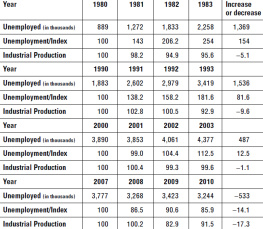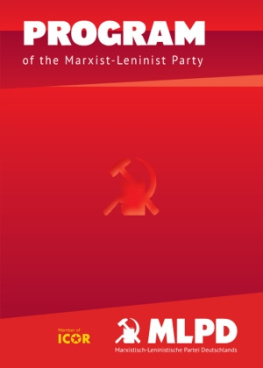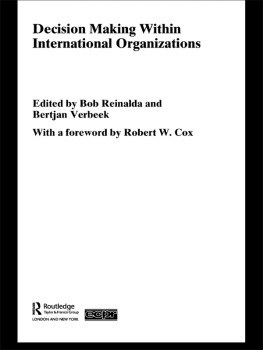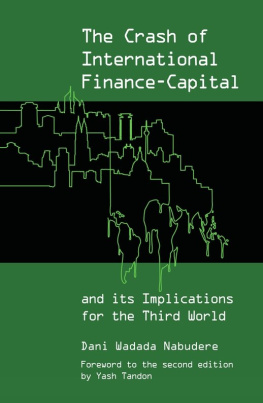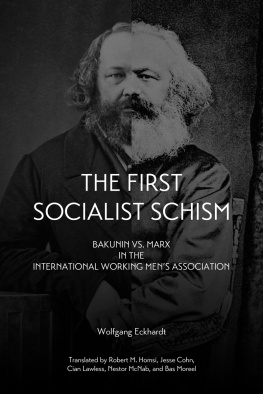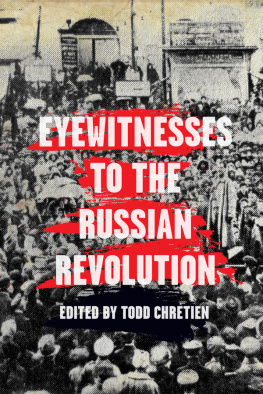Stefan Engel was born in 1954. As a trained mechanic he worked in several large factories. He is a free publicist today. He has been politically active since 1968 and has exercised leading functions in the Marxist-Leninist and working-class movement in Germany since 1975. More and more he has also taken on tasks in the coordination of the international revolutionary and working-class movement. His most important theoretical contributions are contained, inter alia, in the books, The Struggle Over the Mode of Thinking in the Working-Class Movement and Class Struggle and the Struggle for the Liberation of Women. The book, Dawn of the International Socialist Revolution, follows up on the topic of his best-known book to date, Twilight of the Gods Gtterdmmerung over the New World Order.
Editorial Team Revolutionrer Weg
headed by Stefan Engel
Schmalhorststr. 1b, D-45899 Gelsenkirchen, Germany
Morgenrte der internationalen sozialistischen Revolution
(Dawn of the International Socialist Revolution)
First published in German in March 2011 in the series
Revolutionrer Weg, Nos. 3234, 2011
Verlag Neuer Weg
Mediengruppe Neuer Weg GmbH
Alte Bottroper Strasse 42, D-45356 Essen, Germany
Cover photo: gettyimages.de
Overall production: Mediengruppe Neuer Weg GmbH
Introduction
In March 2003, the book Twilight of the Gods Gtterdmmerung over the New World Order appeared. It contains a Marxist-Leninist analysis of the reorganization of international production which has asserted itself in the capitalist world economy since the beginning of the 1990s.
This change in the economic base of capitalism brought the basic contradiction between the social character of production and the capitalist character of appropriation to a point where a new phase in the development of imperialism was ushered in.
The capitalist mode of production now has mainly international character and is subject to the diktat of solely ruling international finance capital, which is made up approximately of the 500 biggest international supermonopolies and rests on the power of the strongest imperialist countries. The internationalization of social production gave tremendous impetus to the development of the productive forces. The material preconditions for a society without exploitation of man by man have improved even further on a worldwide scale. At the same time, this development calls into question all traditional social relations on a scale that far eclipses the economic, political and social effects connected with the development of imperialism at the start of the twentieth century. The universal basic contradiction of our era between capitalism and socialism presses more and more towards a solution.
The economic role of the nation-states increasingly is being taken over by the cartel of solely ruling international finance capital, the leading imperialist states and the international organizations dominated by them. However, the nation-states remain indispensable to the capitalist system as tools of power and rule for the supermonopolies resident there in order to suppress the proletarian class struggle in these states; and indispensable in the competition on the world markets and in the struggle for world domination.
The internationalized revolutionary forces of production rebel against the capitalist relations of production organized on the basis of the nation-states. This was never clearer than during the crisis management practiced by the ruling circles on the occasion of the world economic and financial crisis that broke out in autumn 2008: only the international cooperation of all major imperialist powers at a G20 meeting specifically arranged for that purpose could effectively realize this crisis management, at least temporarily. Thus the sharp contradictions and tremendous effects could be dampened which this world economic and financial crisis, the deepest since at least the Second World War, brought forth. However, the price paid for this was that the underlying problems were not resolved, but aggravated, and deferred to some future time.
The economic constraints of international competition increasingly have undermined the state-monopoly structures, in particular the social rights and gains granted and fought for since the Second World War. With that, the ability of the capitalist system to tie the masses to itself also is diminishing. In tendency, the bourgeois state apparatuses lose the ability to act which they had acquired in the bourgeois democracy, for decades the prevailing form of rule of the dictatorship of the monopolies.
Under the demagogic battle cry of the fight against terrorism, in all imperialist countries the tendency towards internal reaction and external aggression increases enormously. More and more, this reveals that bourgeois democracy is a farce and that the essence of bourgeois class society and its state is the dictatorship of the monopolies.
In the book Twilight of the Gods Gtterdmmerung over the New World Order, we proved that the reorganization of international production has ushered in a new historical period of transformation from capitalism to socialism. It can only mature in the interaction of the objective and subjective factors of the class struggle. Despite all its contradictoriness, the development of an international trend to the left appears to be the most important, the determining manifestation in the growth of the class consciousness of the working class and the broad masses since the turn of the millennium. There are obvious and increasing signs that the relative calm in the class struggle which has persisted for decades irrevocably is dissolving.
In the international production systems an international industrial proletariat has emerged; it is growing at a rapid pace and changing the structure of the working class worldwide. It is testing its strength in the developing struggles, is beginning to become aware of the necessity of international solidarity, is searching for a societal alternative and is becoming receptive to a socialist perspective. The dawn of a new upsurge of the struggle for socialism is breaking.
The Marxist-Leninist analysis of the development of imperialism in the book Twilight of the Gods Gtterdmmerung over the New World Order could only be the first step to adjust ourselves to the new reality. More important are the theoretical and practical conclusions which must be drawn for the further development of proletarian strategy and tactics.

